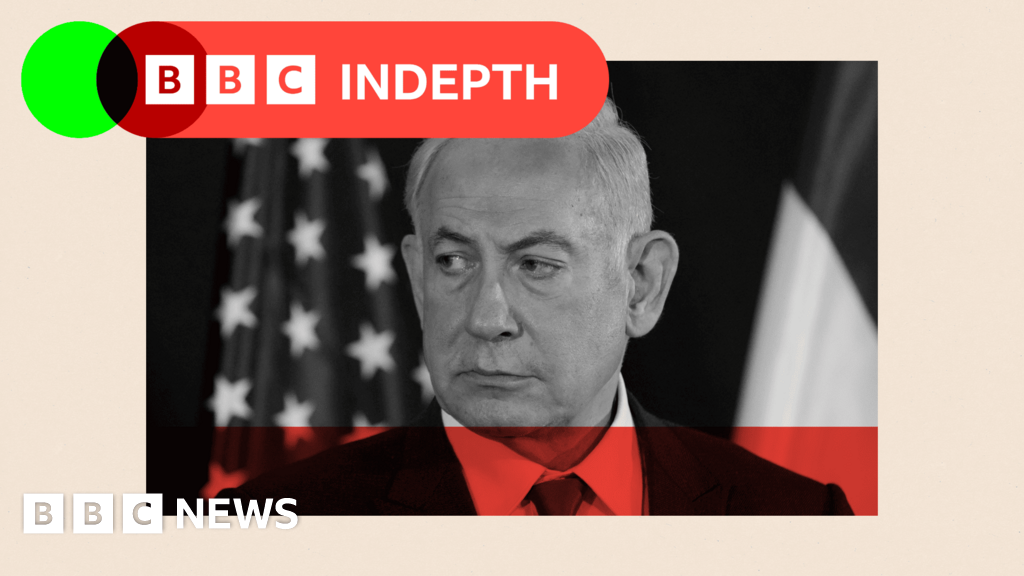Israel’s Ongoing Conflict: A Complex Web of Military Strategy and International Relations
As Israel’s ground invasion of Lebanon approaches its second week, the conflict shows no signs of abating. This escalation comes amid a broader war that has already stretched into its second year, following a series of violent confrontations that have left many calling for a ceasefire. Recent airstrikes in Beirut and the wounding of UN peacekeepers in southern Lebanon have intensified these appeals, highlighting the urgent need for a resolution. Meanwhile, a new offensive in Jabalia, Gaza, underscores Israel’s determination to continue its military operations despite mounting international pressure.
At the heart of this complex situation are three pivotal factors: the events of October 7, 2023; Israeli Prime Minister Benjamin Netanyahu’s leadership; and the role of the United States. The day marked a catastrophic failure for Israeli intelligence and military strategy, resulting in unprecedented casualties and a profound shift in public sentiment regarding security and military action.
The Legacy of Qassem Soleimani
To understand the current dynamics, one must look back to January 2020, when Iranian General Qassem Soleimani was assassinated in a U.S. drone strike. This event, which Israel played a role in facilitating through intelligence sharing, marked a significant turning point in the region’s power balance. Soleimani, head of Iran’s Quds Force, was instrumental in orchestrating Iran’s military strategies across the Middle East, particularly against Israel. His death was celebrated by Israeli leadership but also raised concerns about potential retaliation from Iran and its proxies.
Fast forward to recent months, and the stakes have only escalated. Netanyahu’s decision to bomb an Iranian diplomatic compound in Damascus and the assassination of Hezbollah’s military commander in Beirut have drawn sharp criticism from the U.S. administration, which has been striving to de-escalate tensions in the region. President Joe Biden’s reported frustration with Netanyahu’s aggressive tactics reflects a growing rift between the two allies.
The Changing Landscape of Israeli Military Strategy
The aftermath of the October 7 attacks has fundamentally altered Israel’s military calculus. Historically, Israel’s military responses have been tempered by concerns over international backlash and the potential for broader conflict. However, the recent violence has shifted public perception, leading many Israelis to demand a more aggressive stance against perceived threats from Hezbollah and Iran.
This shift is evident in Netanyahu’s current approach, which appears to disregard previous constraints. The Israeli public, having experienced the horrors of gunmen infiltrating their homes, is less willing to accept a status quo that allows threats to persist. As a result, calls for a tougher military response resonate across the political spectrum, leaving Netanyahu with little room to maneuver.
The Role of International Pressure
Despite the U.S. being Israel’s staunchest ally, the Biden administration faces a delicate balancing act. While it continues to provide military support, the rising civilian casualties in Gaza have sparked criticism and discomfort among American lawmakers and the public. This situation complicates the U.S.’s ability to exert influence over Israel’s military decisions, particularly as Netanyahu seems increasingly willing to act independently of American guidance.
The recent escalation in Lebanon, coupled with ongoing military operations in Gaza, illustrates Israel’s determination to pursue its objectives without yielding to international pressure. Netanyahu’s long tenure has equipped him with the experience to navigate these complex waters, often prioritizing Israel’s security concerns over diplomatic considerations.
A New Era of Conflict
As the conflict continues, the implications for regional stability are profound. The traditional red lines that once governed military engagement in the Middle East have blurred, with both Israel and its adversaries engaging in actions that could have previously triggered all-out war. The assassination of key figures, missile strikes, and cross-border incursions have become part of a new normal, reshaping the landscape of Israeli military strategy.
In conclusion, Israel’s ongoing conflict is not merely a battle against external threats but a reflection of shifting internal dynamics and international relations. As Netanyahu navigates this complex terrain, the world watches closely, aware that the decisions made today will have lasting repercussions for peace and stability in the region. The call for a ceasefire grows louder, but whether it will be heeded remains uncertain as Israel continues to chart its own course in a turbulent landscape.



